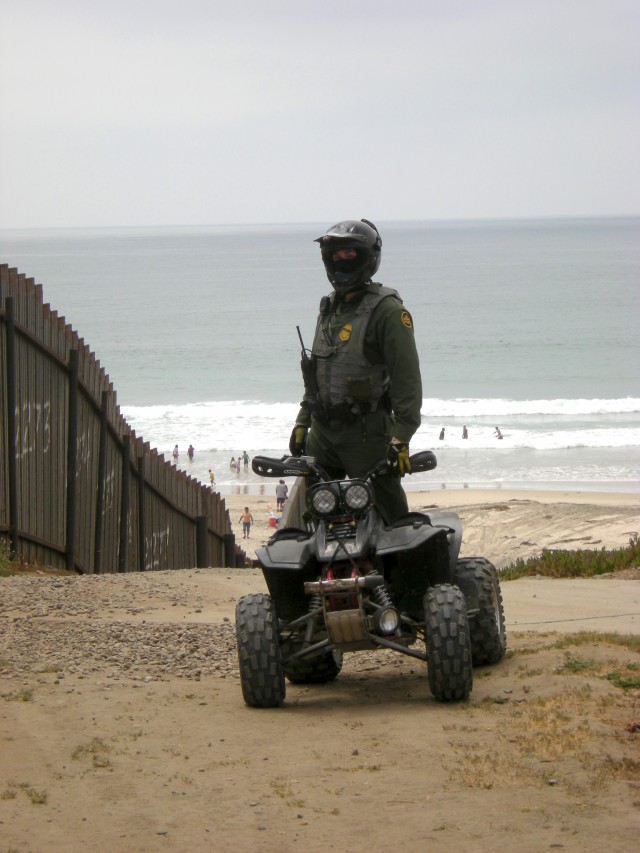Protecting our public wildlands just got a little harder.
On October 5, the U.S. House of Representatives’ Natural Resources Committee passed the unpopular National Security and Federal Lands Protection Act (HR 1505) by a vote of 26 to 17. The bill prohibits the Department of the Interior (DOI) and the United States Department of Agriculture (USDA) from using environmental regulations to hinder U.S. Border Patrol from securing our border on federal lands. Comparing the legislation to REAL ID and the Patriot Act, Senator Jon Tester of Montana has joined numerous Montanans in criticizing the legislation as a “federal land grab” that gives the federal government total authority to make top-down decisions about land within 100 miles of the entire northern border with Canada and the southern border with Mexico.
The legislation allows the agency to waive the Endangered Species Act and three dozen other laws (mostly those of environmental protection) within a massive zone, as well as the American Indian Religious Freedom Act, which guarantees access to religious sites and protection of “sacred objects.”
In a statement released on the day the bill was approved, Tester argued:
“Count me among the Montanans who have serious problems with this bill. But like the Patriot Act and REAL ID, this one can’t be fixed. It needs to be scrapped altogether because no matter how you spin it, it gives the Department of Homeland Security total control over the land we all use. It was a bad billthat should not have been supported before, and it’s a bad bill now.”
The issue here is ongoing. Republican-sponsored legislation has been pushed since the middle of 2010 that would limit authority & control of federal land managers over public lands, ceding authority to DHS & border patrol.
A number of Republicans in Congress have pushed the debate on border security into cock fight between federal agencies, pitting the Department of the Interior against DHS and border patrol. Republicans claim that border patrol agents do not have enough free and unrestricted access to federal lands, and thus, cannot do their job effectively to secure the border.
Border patrol agents themselves have repeatedly disagreed with these claims. Nonetheless, those tasked with the stewardship of our precious wildlands in the Bureau of Land Management and US Fish & Wildlife land managers, along with the Department of the Interior, are now under attack by Republicans for threatening border security.
The consequences here push the debate into a struggle between experts. As one federal agency is being pitted against the other, the public is largely removed from the debate, except to support one or the other of two ideologically rigid positions. Under the current version of this bill, the public would still be shut out of decision-making on federal lands. It could allow timber sales to be stopped, buildings to be built in Glacier National Park, and roads to be built in the Bob Marshall, all without a say from the public.
Last month, Senator Tester told the Great Falls Tribune that the legislation
“gives one federal department the ability to run roughshod over the rights of law-abiding Americans and seize vast swaths of land we all own and use—with no public accountability.”
“This nation is very capable of fighting terrorism without turning into a government police state, but that’s exactly what this unpopular plan would do,” Tester added.
Republican extremists have framed this debate as a zero-sum game pitting idealistic environmental stewards who allegedly don’t care about border security against supposedly more responsible border security agents who need complete authority & control. In fact, these conflicts have largely been resolved through MOAs and other agreements giving BP plenty of access to public lands when needed.
Two major figures are leading the charge: Senator Tom Coburn, Republican from Oklahoma, in Sept 2009, proposed an Amendment No. 2523 to the FY2010 Appropriations bill that would prohibit the use of funds for anything that would “impede, prohibit, or restrict” activities of DHS on public lands.
SEC. __. PROHIBITION ON USE OF FUNDS TO IMPEDE OPERATIONAL CONTROL.
None of the funds made available by this Act may be used to impede, prohibit, or restrict activities of the Secretary of Homeland Security on public lands to achieve operational control (as defined in section 2(b) of the Secure Fence Act of 2006 (8 U.S.C. 1701 note; Public Law 109-367)) over the international land and maritime borders of the United States.
Representative Rob Bishop, Republican of Utah, advanced an argument last summer (June 2010) that mitigation funding amounted to “extortion” on the part of the DOI. DHS made commitments to provide mitigation funding (a pittance, in reality) to restore the damage to public lands caused by the construction of the border wall.
The bill now has to be passed in the full House of Representatives before it moves on to the Senate.
UPDATE ***************** 2012 April 17
H.R. 1505 was formally reported in the House of Representatives on April 17, 2012. “The National Security and Federal Lands Protection Act,” sponsored by conservative Rep. Rob Bishop (R-Utah), would give Border Patrol and Customs agents and other federal officials the right to suspend any federal law on land managed by the departments of Interior and Agriculture. The bill is stalled in the House and has little support from Democrats in the Senate.
The LA Times reports that “the Border Patrol told Congress last year that it had forged agreements with the National Park Service and other land managers and that the agencies have been working cooperatively. Homeland Security Secretary Janet Napolitano testified before Congress last month, saying the bill “is unnecessary, and it’s bad policy.”


Pingback: H.R. 1505 – The so-called National Security and Federal Lands Protection Act